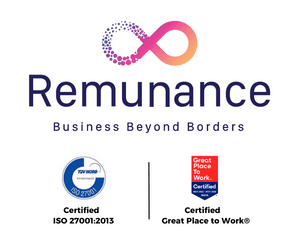In today’s increasingly digital and globalized world, payroll systems are undergoing a major transformation. Traditional centralized payroll systems are being challenged by decentralized payroll, a model that leverages blockchain and distributed technologies to enhance transparency, efficiency, and flexibility in paying employees across borders.
But what exactly is decentralized payroll? How is it different from centralized systems? And what are its benefits and challenges? Let’s explore.
What Is Decentralized Payroll?
Decentralized payroll is a modern payroll management system that operates on blockchain or distributed ledger technology (DLT) rather than relying on a single centralized database or authority.
In this model, payroll data—such as salary records, tax details, and payment transactions—is securely stored and verified across a network of decentralized nodes. This ensures greater transparency, security, and control over how employees are paid, especially in global, remote, or crypto-based workforces.
For example, instead of routing salaries through a single corporate bank account, payments in a decentralized payroll system can be made directly using cryptocurrency, stablecoins, or digital assets—reducing intermediaries and transaction times.
Centralized vs. Decentralized Payroll: The Key Differences
AspectCentralized PayrollDecentralized PayrollData ControlManaged by a single HR/payroll department or providerDistributed across multiple blockchain nodesTransparencyLimited visibility for employeesReal-time visibility of transactions and recordsSecurityVulnerable to data breaches or single-point failuresEnhanced security through encryption and distributed storagePaymentsTypically processed through banks or payroll intermediariesCan use crypto, smart contracts, or direct peer-to-peer paymentsScalabilityOften complex for global teams with multiple currenciesEasier global scalability and currency flexibilityComplianceManaged manually or through centralized toolsCan integrate programmable compliance via smart contracts
Key Benefits of Decentralized Payroll
1. Enhanced Transparency
All payroll transactions are recorded on a tamper-proof ledger, allowing both employers and employees to verify payments and deductions in real time. This reduces disputes and builds trust across teams.
2. Faster, Borderless Payments
Decentralized payroll allows companies to pay employees anywhere in the world instantly using digital currencies or blockchain-based payment channels. This eliminates costly cross-border fees and currency conversion delays.
3. Improved Data Security
Since there’s no single database, decentralized systems minimize the risk of data breaches or insider tampering. Every transaction is encrypted and verified across multiple network nodes.
4. Automation through Smart Contracts
Payroll calculations, tax deductions, and benefits disbursements can be automated using smart contracts, reducing administrative workload and human error.
5. Lower Costs
By removing intermediaries—banks, clearing houses, and payroll processors—organizations can significantly reduce transaction and operational costs.
Challenges of Decentralized Payroll
Despite its promise, decentralized payroll is still an emerging concept with several hurdles to overcome:
1. Regulatory Uncertainty
Different countries have varying regulations regarding crypto payments, taxation, and financial reporting. Compliance can be complex for global businesses.
2. Volatility of Digital Assets
If payments are made in cryptocurrencies, price volatility can affect employees’ actual income unless stablecoins or instant conversions to fiat are used.
3. Integration with Legacy Systems
Many companies still rely on centralized HR and accounting tools, making integration with blockchain payroll systems challenging.
4. Limited Adoption & Expertise
As the technology is still evolving, few payroll providers offer decentralized solutions, and internal teams may lack the technical expertise to implement them effectively.
The Future of Payroll: Hybrid Models
The future may not be purely decentralized. Many experts predict a hybrid payroll model—combining the reliability of centralized systems with the flexibility and innovation of decentralized technologies.
For instance, global companies could continue managing compliance and taxation centrally while using decentralized payment rails for cross-border salary disbursements.
Final Thoughts
Decentralized payroll represents a paradigm shift in how organizations manage compensation, especially for distributed and remote teams. It promises faster, safer, and more transparent payroll processes—but it also demands careful consideration of compliance, integration, and volatility issues.
As blockchain adoption grows, we’re likely to see decentralized payroll evolve from a niche innovation into a mainstream solution for global workforce management.
Keywords for SEO: decentralized payroll, centralized payroll, blockchain payroll, crypto payroll, payroll automation, smart contracts, global payroll, cross-border payments





Comments